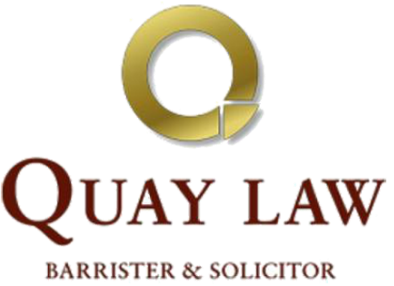
Reverse Mortgages Lawyer
Reverse mortgages in New Zealand are also known as Retirement Equity Release Loans, and they are becoming increasingly popular with those Kiwi’s at or nearing retirement age. Why are they so special? Well, they provide a unique opportunity to those in retirement to access the equity in their home.
Why are reverse mortgages getting so popular right now? The answer is simple – interest rates. With interest rates climbing (seemingly) ever higher, many are finding that loan repayments are tougher than ever. Additionally, retirement can put pressure on your finances -but that doesn’t necessarily mean the retirees in question want to move out of their home! In fact, retirees often find themselves in a situation where they are mortgage free but cash poor – and you can’t pull a brick or two out of the wall to buy groceries or pay for a holiday! In these types of situations, a reverse mortgage can sometimes be the answer.
First Up -How Does Reverse Mortgage Work?
A reverse mortgage works by valuing the house through a financial institution and engaging in a loan for that amount. The idea of accessing equity is not a new one – in fact many home owners have a mortgage redraw facility. This, however, is not an option for someone who either has no mortgage because it has already been paid back years ago or is very close to the end of the loan.
Eligibility for a reverse mortgage loan, the amount, the repayment terms, and the specifics of the loan agreement are variable and unique to each situation – which is why a licenced and trusted financial professional should be consulted before entering into one.
What’s Involved in Judging Reverse Mortgage Eligibility?
The main eligibility factor for a reverse mortgage is your age – you must be at least sixty years old in order to be considered for a reverse mortgage. The most common retirement age in New Zealand is sixty -five, this is due to the fact that sixty -five is the age at which New Zealander’s qualify to access their Superannuation. This can also go some way to explaining why so many older Kiwi’s aged between sixty and sixty -five are interested in information about reverse mortgages – many have retired or would like to retire but cannot access their Superannuation yet. As these financial products are aimed at pensioners, those under the retirement age will need to turn their attention to other financing options.
Additionally, your home must me mortgage free or nearly paid off in order to be considered for a reverse mortgage.
Eligibility For a Reverse Mortgage If You Own a Home, Or If You Do Not Own a Home
Regardless of whether or not you have paid off your home in its entirety or if there is a small amount left on the original mortgage – you still have to be over sixty years of age to be considered.
There are some institutions which will only consider you for a reverse mortgage if you own your own home in it’s entirety, but others will consider lending to you in the form of a reverse mortgage so long as you have paid off a suitable amount of your initial loan.
How Much Can Be Borrowed On a Reverse Mortgage?
While reverse mortgages can be up to 50% of the home’s value, the specific amount that can be borrowed in a reverse mortgage is dependant on a great number of factors and you should seek detailed advice from a trusted mortgage advisor. A good mortgage advisor will be able to walk you through the processes, work with you to understand the process, and assist with communication with the bank or other lender – in our role as your lawyer, we cannot give you financial advice and instead encourage you to talk about your reverse mortgage options with a licenced financial professional who can take your individual circumstances, goals, and needs into account.
When Does Reverse Mortgage Had to Be Repaid?
A reverse mortgage is only paid when you leave the home and sell it whether this is when you choose to sell up and move into a retirement village or when you pass and your estate is processed.
What Are the Pros Of Reverse Mortgage
There are some significant benefits for those undertaking a reverse mortgage or Retirement Equity Release Loan when it is carefully considered, good financial advice is sought, and a solid plan is laid our for it.
Many consider a reverse mortgage to supplement their Superannuation payments, or to make a significant purchase, or to pay off a debt they are concerned about. The benefit of a reverse mortgage is that there is no restriction on what you can spent the money on – you may want to buy a boat, go on a cruise, or pay off medical bills. Depending on the reason you are seeking the reverse mortgage, you can have it delivered to you in a lump sum or in a stream of regular payments – whichever suits your specific needs better.
In New Zealand, our reverse mortgage providers guarantee that your loan will not go in to negative equity. This is a very good thing as this means that if the loan exceeds the amount your home ends up being valued at neither you nor your estate will be hassled by the bank to repay that difference.
A major benefit of the reverse mortgage model that is attractive for a lot of people is the fact that you do not have to make regular payments, which would in many cases defeat the purpose of getting a reverse mortgage! You get to stay in your home until you pass or decide to move to a retirement village, at which point you will repay the loan when the home is sold.
What Are the Cons Of Reverse Mortgage
There is often a lot about the idea of a reverse mortgage that sounds great but there are significant risks and drawback that you should consider before entering into a financial agreement of this type.
Property eligibility is a factor for many, with lenders refusing to offer reverse mortgages on farms or lifestyle blocks, and some types of property such as retirement village homes may be ineligible for other legal reasons.
A reverse mortgage can restrict your freedom to choose how you spend your retirement. When a reverse mortgage is active on a house, you cannot rent it out while travelling long term or move into aged care without being required to sell the home. If you have not got set plans and freedom is one of the things that you’re looking forward to in retirement then a reverse mortgage might not be for you.
As this is a financial product, your lender does expect to make money from the arrangement and therefore your loan will accumulate interest, which in 2023 is usually offered at around 8% interest. There can be some reduction in the equity lost if property values are going up over the time that your reverse mortgage is in play but this relies both on the property market increasing and the ability to time the sale of your home.
The fees around a reverse mortgage can be a killer in addition to the conditions set by your lender. You may be required to maintain the property in a certain way, pay a range of fees that you don’t see up front but are simply added to the loan total that you pay interest on (and that can run in to the thousands of dollars), and the compounding effect of the interest can make a serious dent in the remaining equity in the house.
The effects of fees, compounding interest, and other factors can have serious implications when you are hoping to sell the home, repay the loan, and move into a retirement village – if the remaining equity doesn’t cover the cost of the move or the fees charged by the retirement village you may be left without many options.
The Differences Between Home Loans and Reverse Mortgages
A home loan is a lump sum paid to you (or often directly to your builder or the sellers) which you pay back slowly over time, reducing the principle amount you owe and therefore the interest paid on it.
A reverse mortgage adds the interest you owe to the principle amount, and as you do not pay a reverse mortgage off over time that principle amount grows instead of decreases. While no negative equity guarantees exist in New Zealand, this does not protect you from the loan increasing to encompass the entire value of your home – leaving you with nothing when you sell.
The common interest rate given for reverse mortgages in New Zealand in 2023 are usually around 8%, which around double the 4-5% interest rates offered for home loans. You also need to take into consideration that interest rates are often variable (also called floating rates), which means can go up or down in line with the banks whims or the standard interest rate.
What Are Some Other Options, If Available?
There are many options to consider if a reverse mortgage is too risky for you, you don’t meet eligibility requirements, or you’re not interested in the restrictions placed on you by such an agreement.
Consider selling your home and using the proceeds to buy a smaller home outright. By downsizing you can release the equity in the home, still own where you live, and enjoy the difference in costs.
Depending on your local situation you could subdivide or cross lease your property – getting the best of both worlds.
If you are planning on travelling long term, you could look to rent your home out while you are gone. This has the added benefit of adding an income stream while you travel. Similarly, you could rent out a room you don’t need and take in a boarder.
Discuss your options with your council about rates reliefs, rebates, and pensioner schemes that can help smooth your cash flow.
You can also consider selling part or all of your home to a family member or using the house as collateral in a loan agreement with your family.
In any financial or property situation you should always get independent legal advice and proper documentation before agreeing to any terms – even with family members. Setting this out early can stop future disagreements before they start.

